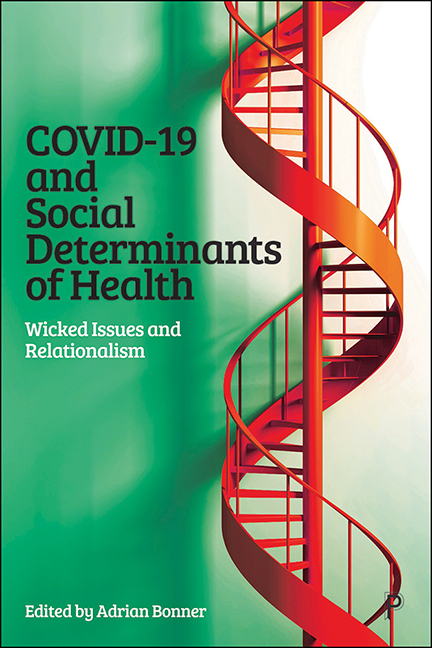Book contents
- Frontmatter
- Miscellaneous Frontmatter
- Contents
- List of figures and tables
- Notes on contributors
- Foreword
- Introduction
- Part I Wicked issues and relationalism
- Part II Regionalism and geopolitical environments
- Part III Public sector, COVID-19 and culture change
- Part IV The third sector
- Part V The case for relationalism
- Part VI Engagement and proposed changes
- Conclusion
- Appendix The Centre for Partnering
- Index
Part V - The case for relationalism
Published online by Cambridge University Press: 18 January 2024
- Frontmatter
- Miscellaneous Frontmatter
- Contents
- List of figures and tables
- Notes on contributors
- Foreword
- Introduction
- Part I Wicked issues and relationalism
- Part II Regionalism and geopolitical environments
- Part III Public sector, COVID-19 and culture change
- Part IV The third sector
- Part V The case for relationalism
- Part VI Engagement and proposed changes
- Conclusion
- Appendix The Centre for Partnering
- Index
Summary
In order to prove, evidentially, the additional value/dividend that can arise from a relational partnering approach, the Centre for Partnering has initiated an Exemplar Projects Initiative. The purpose of this initiative is to create a partnering environment which incorporates the use of relationalism by the public, private and third sectors. On a practical note, this demands the establishment of a number of new projects and facilitating new ideas, innovation and thinking within a different cultural framework.
This will involve identifying a number of organisations prepared to approach a partnering opportunity in a different way. It demands key individuals with appropriate partnering experience to consider changes to a traditional partnering approach which has historically placed a high priority on compliance with procurement rules, including emphasis on value for money, meeting specifications and adherence to a contract framework. A future relational culture demands a partnership of equals with a clear focus on delivering enhanced social and commercial value combined to secure improved outcomes across a range of measures.
It is imperative that the Centre for Partnering takes account of previous and existing partnering arrangements in order to learn lessons as to previous successes and failures. These are in part reflected in the case studies described in this section. In establishing the new projects forming part of the Exemplar Projects Initiative, these lessons will be noted and become part of the Relationalism Knowledge Base (see Appendix). The case studies currently forming part of the Exemplar Projects will focus on the private sector and, in particular, a council’s use of public assets. Other case studies will address renewable energy and homelessness. These case studies should be read in the context of lessons learned in the evolution of relational partnering and provide a perspective for the proposed changes that are discussed in Part VI.
These case studies raise a number of issues in connection with the underlying themes arising throughout this book with respect to the promotion of the concept of relationalism. Recurrent themes in each case study include fairness, a focus on outcomes, collaboration, communication, transparency and acknowledgement of the need to generate a profit while, at the same time, being socially and environmentally responsible.
- Type
- Chapter
- Information
- COVID-19 and Social Determinants of HealthWicked Issues and Relationalism, pp. 307 - 308Publisher: Bristol University PressPrint publication year: 2023

